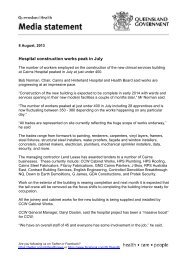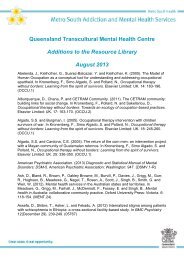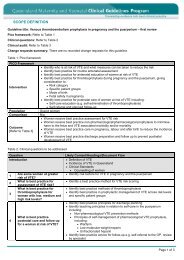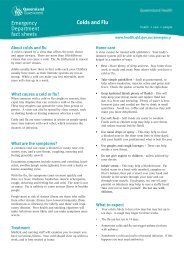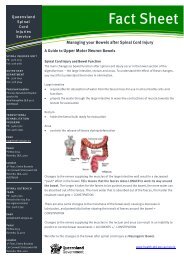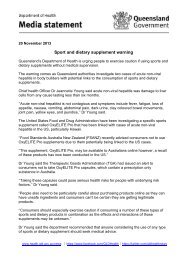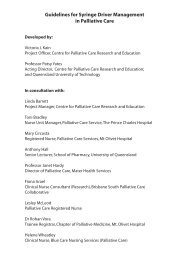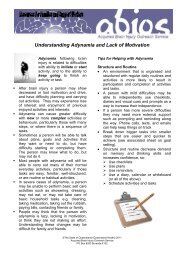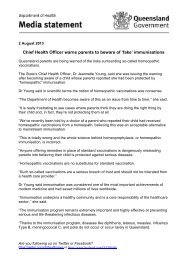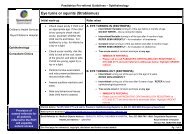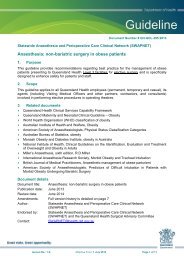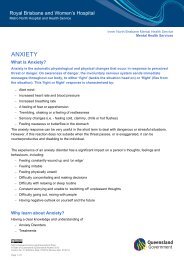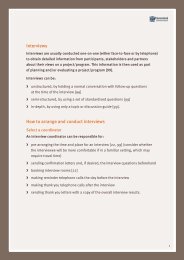Paediatrics - Queensland Health - Queensland Government
Paediatrics - Queensland Health - Queensland Government
Paediatrics - Queensland Health - Queensland Government
You also want an ePaper? Increase the reach of your titles
YUMPU automatically turns print PDFs into web optimized ePapers that Google loves.
Gastrointestinal problems<br />
4. Management<br />
• Dietary interventions:<br />
- - encourage a healthy diet with fruit and vegetables and wholegrain cereals<br />
- - encourage drinking plenty of water<br />
- - pears (fresh or pureed) or prunes will stimulate the gut gently and soften<br />
stools<br />
- - excessive dietary intake can cause constipation in children<br />
• Encourage physical activity<br />
• Toileting programs:<br />
-- -take advantage of the gastrocolic reflex. Most people, especially children<br />
have the urge to pass a motion after eating a meal, especially breakfast<br />
-- -advise that the child should sit on the toilet after each meal and attempt to<br />
pass a motion without straining<br />
-- -positively reinforce good behaviour. A reward for sitting on the toilet and<br />
passing a motion is often beneficial<br />
• Disimpaction:<br />
-- -oral laxatives<br />
○ liquid paraffin, chocolate flavoured liquid paraffin i.e. Parachoc. Avoid<br />
in infants under 12 months of age<br />
○ lactulose, senna, Movicol Half ®<br />
-- enemas<br />
○ micro-enemas such as Microlax®<br />
• Most constipation in children will resolve with these measures. If it persists, refer<br />
to the next Child <strong>Health</strong> Nurse or MO clinic or Continence Advisor<br />
5. Follow up<br />
Children with constipation should be reviewed regularly to assess progress.<br />
Once the problem settles remember to continue with dietary improvement and<br />
increased water intake to prevent recurrence<br />
Advise parent / carer to use appropriate gentle fibre or laxative (prune / pear juice<br />
/ psyllium) for at least 3 months to regulate peristalsis<br />
6. Referral / consultation<br />
Consult MO if constipation is severe, or the child is unwell in any other way<br />
Child <strong>Health</strong> Nurse<br />
Continence Advisor (if available)<br />
MO may consider referral to a Paediatrician<br />
Children with chronic constipation require long term management with multiple<br />
laxatives to keep their stool soft and prevent recurrence of painful anal fissures.<br />
It is important to ensure observance with laxative regimes<br />
Primary Clinical Care Manual 2011 Controlled copy V 1.0 617



